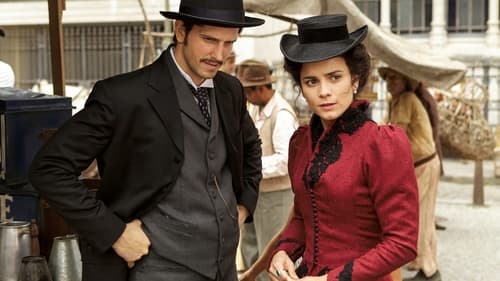
Director of Photography
A pickpocket assumes various identities to steal from the aristocracy in early-20th-century Rio de Janeiro.

Director of Photography
In Justiça, Maria Ramos puts a camera where many Brazilians have never been - a criminal courtroom in Rio de Janeiro, following the daily routine of several characters. There are those that work there every day (public attorneys, judges, and prosecutors) and those that are merely passing through (the accused). The camera is used as an instrument that sees the social theatre, the structures of power - that is to say, what is, in general, invisible to us. The corridors of the Courts of Justice, the design and layout of the courtroom, the discourse, the codes, postures - all the little visual details and sounds become relevant.

Director of Photography
Maria Auxiliadora is a 24 year-old woman very poor, that she lives Joana, her 7 year-old daughter close to. Needing go look for the result of Joana's exam in the hospital, Maria asks the priest of the local church that takes care of her to return. In spite of Joana's insistence to go with the mother Maria insists that she is with the priest, because she distrusts that her daughter suffers of a serious disease. To entertain the girl while it awaits the mother's return, the priest decides to tell her a mother's history that dedicated her life to the son: Mary, mother of Jesus Christ.

Cinematography
Short musical film paying a tribute to samba composer Zé Ketti, one of the greatest popular artists of Brazilian music. In a jam session, in the late composer's house in Inhaúma, a neighborhood of Rio de Janeiro, a group of friends get together to play his music while a "feijoada" (typical Brazilian food with black beans)is being cooked in the kitchen. The samba-players, first-rate samba stars themselves, remember Ketti's great hits in a homage to the man who was best known as "a voz do morro" ("the hill's voice" - but hill as a metaphor for a place where poor people build their shacks in slums, in opposition to city, where middle-class people live in Rio). Among the guests, names of the traditional "samba-school" Portela and ex-partners. Also, the presence of a black hat on an empty chair, represents the composer himself, who died in 1999, after a life of many accomplishments in music, and appearance in three of Dos Santos's films: "Rio, 40 Graus", "Rio Zona Norte" and "Boca de Ouro".

Director of Photography
Brazilian music gets the royal treatment in this eclectic collection that features performances from such luminaries as Jorge Aragao, Fundo de Quintal, Alcione and Bezerra Da Silva. Songs include "Malandro"; "Vendi Meu Peixe"; "Amor A Primeira Vista"; "Do Fundo Do Nosso Quintal"; "Tendencia"; "Miudinho, Meu Bem, Miudinho"; "Pot Pourri: Poeira Da Idade/ Eu Sei Que Vou Te Amar"; "Parabens Do Brasil Pra Voce"; and more.

First Assistant Camera
A documentary about the fathers of Bossa Nova: João Gilberto and Antonio Carlos Jobim.

Camera Production Assistant
A portrait of conteporary China from Tai-chi-chuan to chinese arts.

Sound
A portrait of conteporary China from Tai-chi-chuan to chinese arts.





